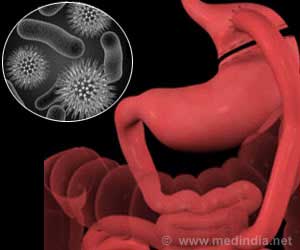
‘Gut bacteria play a role in synthesizing vitamin B and K, break down food and metabolize bile acids, sterols and xenobiotics.
’
Tweet it Now
The results can help scientists better understand the factors that maintain a healthy gut microbiome. The warm, soft folds of our intestines are home to hundreds of species of bacteria and other microbes that help break down food, synthesize vitamins, train the immune system and fight infections.
Reduced gut microbial diversity in humans has been linked to obesity, diabetes, Crohn's and other diseases.
"The more diverse people's microbiomes are, the more resistant they seem to be to opportunistic infections," said study co-author Andrew Moeller, research fellow at the University of California - Berkeley, US.
The researchers analyzed the bacterial DNA in droppings collected from 40 chimpanzees between 2000 and 2008. The chimpanzees ranged in age from infants to seniors.
Advertisement
The team then combined the microbial data with daily records of what the animals ate and how much time they spent with other chimps versus alone.
Advertisement
"During the dry season they spend more time alone," Foerster said.
The researchers found that each chimpanzee carried roughly 20 to 25 percent more bacterial species during the abundant and social wet season than during the dry season.
The study was published in the journal Science Advances.
Source-IANS















